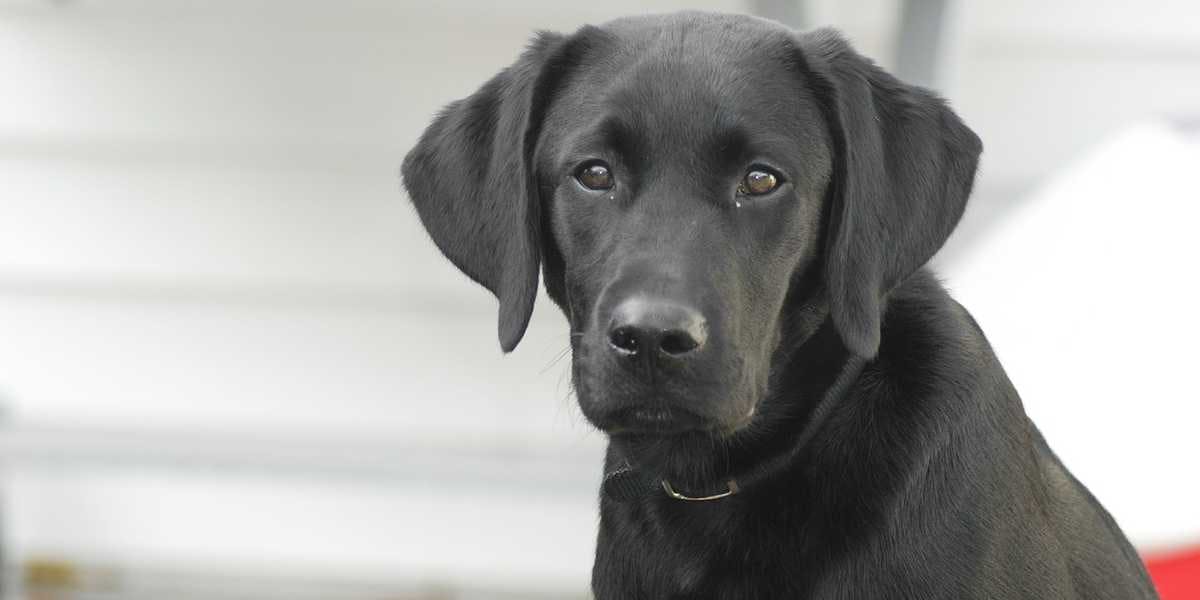DOGBREEDS
Labrador
A friendly and social dog breed, who loves water, needs lots of activity and forms strong bonds with its owner.
The breed has a lot in common with its relative, the Golden Retriever.
Labrador Retriever
We have a lot in common with our relative, the Golden Retriever. In appearance, we are quite similar, but one thing distinguishes us: the length of our coats.
While a Golden Retriever has quite a long coat, we Labradors are shorthaired. We also have more energy than a Golden Retriever.
Forever a puppy
Especially as puppies, we can be wild. We are not known to mature fast, so we appreciate that you are patient and do not give up on training us. We are not stupid, just childish.
When we eventually do grow up, we become much calmer and can be perceived as sane and stable dogs, who fit perfectly into a family situation.
We like to do things on our own terms, but usually don't mind doing what you want us to. The trick is to train us in a way that allows us to work as a team. A Labrador Retriever should be encouraged to work with you, not against you.
The vast majority of Labradors will enjoy working for their owners, as they are very people-oriented.
The labrador retriever is an allround breed that fits many dog lovers
A versatile breed - The Labrador can be used for «everything»
You should familiarise yourself with our strong retrieval instinct. We love to pick things up, whether it's a toy, food, or your socks.
Labradors are water-retrieving dogs originally used for hunting.
An important characteristic is the hunting instinct
The Labrador is often used for several types of hunting. How prominent our hunting instinct is, depends on what qualities have been emphasized by our breeders.
We are versatile no matter what and can be used as rescue dogs, search dogs, sniffer dogs, and therapy dogs.
We can also be used in dog sports, including obedience, rally obedience, and agility.
Golden retrievers are fantastic hiking buddies
If you love long walks in woodlands and mountains– and maybe need a dog that is able to pull a sled, or carry a hoof– the Labrador will be just right. The most important thing for us is to get an outlet for our inherent energy and need for adventures. As long as these needs are met, we have the potential to become the perfect hiking buddy.
Labradors often win medals in dog competitions such as obedience and agility.
In other words, we love active people, especially if we are used purposefully.
By the way: If you expose us to other animals, such as cats, we will accept them as family faster than you might expect. Gradual introductions are recommended. But in general, among Labradors, aggression against other dogs or pets is rarely seen.
Labrador Retrievers come in three conformation colors: yellow, black, and chocolate.
How much does a Labrador Retriever bark?
Labradors were bred to be careful, but social dogs. It is not a breed known to be noisy.
With the right training, you will be able to get a Labrador that only barks occasionally. However, there are differences within the breed - some individuals will bark more than others.
In order to reduce our barking, or make us understand when it is okay for us to bark, it is important that you train us from we are puppies.
A relatively healthy breed, but can be affected by certain issues.
Labrador is an overall healthy breed without health problems.
Some diseases/disorders can still occur, like with all dog breeds.
The most common problems we have are hip dysplasia, elbow osteoarthritis, ear infection, various eye diseases - for example, PRA (Progressive Retinal Atrophy), and allergies (which can result in skin conditions).
Our coat requires minimal care, despite the fact that it is dense and thick. You can usually just brush through our coat a couple of times a week. In seasonal changes, we shed more, and it may be necessary to brush us more often.
Size / appearance
Labrador retrievers are medium-sized dogs and usually weigh between 25-35 kg.
Height, females: 54-56cm
Height, males: 56-57cm
Something to be aware of
Researchers from the University of Australia and The Royal Veterinary College in London have studied typical health problems among Labradors in the UK.
Their findings show that obesity is a common problem in this breed. Among 33,320 analyzed dogs, the researchers found that 8.8 percent of them were overweight.
This means that Labrador retrievers are among the dog breeds with the highest incidence of overweight. According to the findings, neutered male dogs are more prone to obesity than non-neutered dogs. This only applied to the male dogs, not the bitches.
Contact us
Contact us
Media & Partnerships
support@lildog.com
Address
Lildog AS - Skippergata 14
7042 Trondheim, Norway
